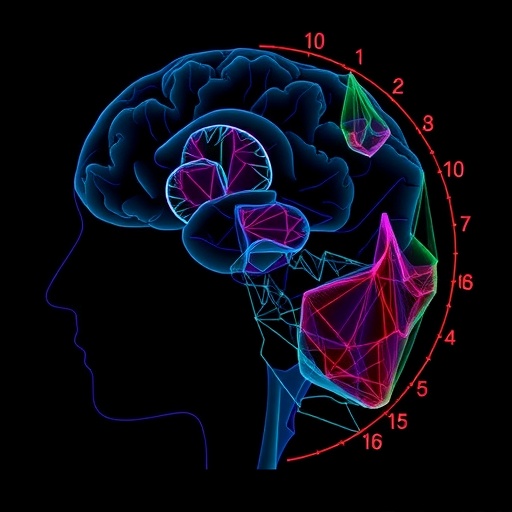In an era where the understanding of human biology intersects with cognitive function, researchers are diving into the complexities of how our biological rhythms affect memory and cognition over the lifecycle. A groundbreaking study published in Biology of Sex Differences provides significant insights into how age and sex modulate diurnal memory oscillations, circadian rhythmicity, and the expression of the gene Per1, which plays a critical role in our circadian clocks.
The study deftly explores the intricate relationship between our internal biological clocks and memory processing, arguing that both age and sex have profound influences on these mechanisms. Circadian rhythms, which govern various physiological processes in roughly 24-hour cycles, are crucial not only for sleep-wake patterns but also for cognitive functions such as memory consolidation. Understanding these relationships can potentially inform strategies for improving cognitive health across different demographics, emphasizing the importance of personalized approaches to memory-related therapies.
At the center of this research is the gene Per1, a pivotal component of the circadian rhythm pathway. Its expression entails a series of biochemical interactions that synchronize the body’s internal clock with environmental cues such as light and temperature. The study highlights that variations in the expression levels of Per1 significantly correlate with changes in diurnal memory oscillations, suggesting that our cognitive abilities may be more closely tied to circadian regulation than previously understood.
The findings reveal that younger individuals tend to display more pronounced diurnal fluctuations in memory performance compared to older adults. As individuals age, these oscillations seem to diminish, pointing to potential declines in cognitive flexibility and adaptability. This shift could have meaningful implications for developing cognitive enhancement programs that cater to specific age groups, particularly aimed at maintaining optimal cognitive function throughout aging.
Moreover, the research underscores noted distinctions in how males and females experience these memory oscillations and circadian patterns. Hormonal fluctuations in females, particularly those related to the menstrual cycle, are hypothesized to impact memory performance and rhythms. This added layer of gender dynamics adds complexity to our understanding of cognition and biological rhythms, presenting opportunities for exploring sex-specific cognitive interventions.
The authors employed a comprehensive methodology involving molecular assays alongside cognitive tests to elucidate the underlying connections between Per1 expression and memory performance. By combining physiological measurements with behavioral assessments, this study paves the way for future multi-faceted explorations into how circadian biology interplays with cognitive health across life stages.
In addition to individual differences across age and sex, the study also addresses external factors such as lifestyle and environmental influences on circadian rhythms. Modern life, characterized by irregular sleep patterns and exposure to artificial light, can disrupt our natural rhythms and potentially compromise memory performance. Thus, the research calls for a nuanced approach to lifestyle interventions that consider both biological proclivities and external environmental factors.
Further enriching the discussion, the paper emphasizes the potential for circadian-based therapies that could ameliorate memory-related issues, particularly in aging populations. By implementing strategies that align with natural circadian rhythms—such as optimal light exposure and timing of cognitive tasks—there may be opportunities to enhance memory function and overall cognitive health.
Additionally, the research opens up possibilities for technological applications and interventions designed to remind individuals of optimal times for memory-engaging activities based on their unique circadian profiles. As interdisciplinary approaches merge psychology with chronobiology, the resulting insights could revolutionize how we understand and facilitate cognitive health.
As society grapples with increasing cognitive challenges related to aging demographics, this study serves as a clarion call for further exploration into the subtle yet powerful connections between our biological clocks and cognitive functioning. With rising interest in personalized medicine, findings such as these illustrate the importance of integrating genomic factors with behavioral science to foster better health outcomes.
By investigating the genetic underpinnings of circadian rhythms and cognitive performance as outlined here, we take a step closer to comprehensively understanding human cognition and memory. As research continues to evolve, future studies are likely to delve deeper into the genetic, hormonal, and environmental influences shaping these pivotal aspects of our lives.
In conclusion, the intersection of age, sex, and circadian biology presents a rich landscape for scientific inquiry. The remarkable insights provided by this study signal a promising direction for future research that directly influences how we approach cognitive health interventions, potentially altering lives through tailored approaches born from nuanced scientific understanding.
Continued exploration in this field holds the key to unlocking the myriad complexities surrounding memory and cognition, thus equipping researchers and healthcare practitioners with essential tools to mitigate cognitive decline associated with aging. This research not only highlights the fascinating interconnections found within our biology but emphasizes the necessity for recognition of individual differences in cognitive strategies and health interventions.
With the field moving forward, the hope remains that a better understanding of these intricate connections will profoundly affect cognitive health strategies, ultimately enriching the human experience as we embark on the journey of life.
Subject of Research: Circadian rhythms, memory, and gene expression across age and sex
Article Title: Age and sex influence diurnal memory oscillations, circadian rhythmicity, and Per1 expression.
Article References:
Bellfy, L., Pifer, G.C., von Abo, M.J. et al. Age and sex influence diurnal memory oscillations, circadian rhythmicity, and Per1 expression.
Biol Sex Differ 16, 74 (2025). https://doi.org/10.1186/s13293-025-00756-x
Image Credits: AI Generated
DOI: 10.1186/s13293-025-00756-x
Keywords: circadian rhythm, memory, cognitive function, aging, gender differences, gene expression, Per1, diurnal oscillations, interventions, cognitive health.
Tags: age-related cognitive changesbiochemical interactions in circadian rhythmsbiological clocks and memorycircadian rhythms and cognitioncognitive health across demographicsdiurnal memory oscillationsgene Per1 and circadian rhythmsimportance of circadian rhythmicity in cognitionmemory consolidation and sleep-wake patternspersonalized memory therapiesphysiological processes and memorysex differences in memory processing





